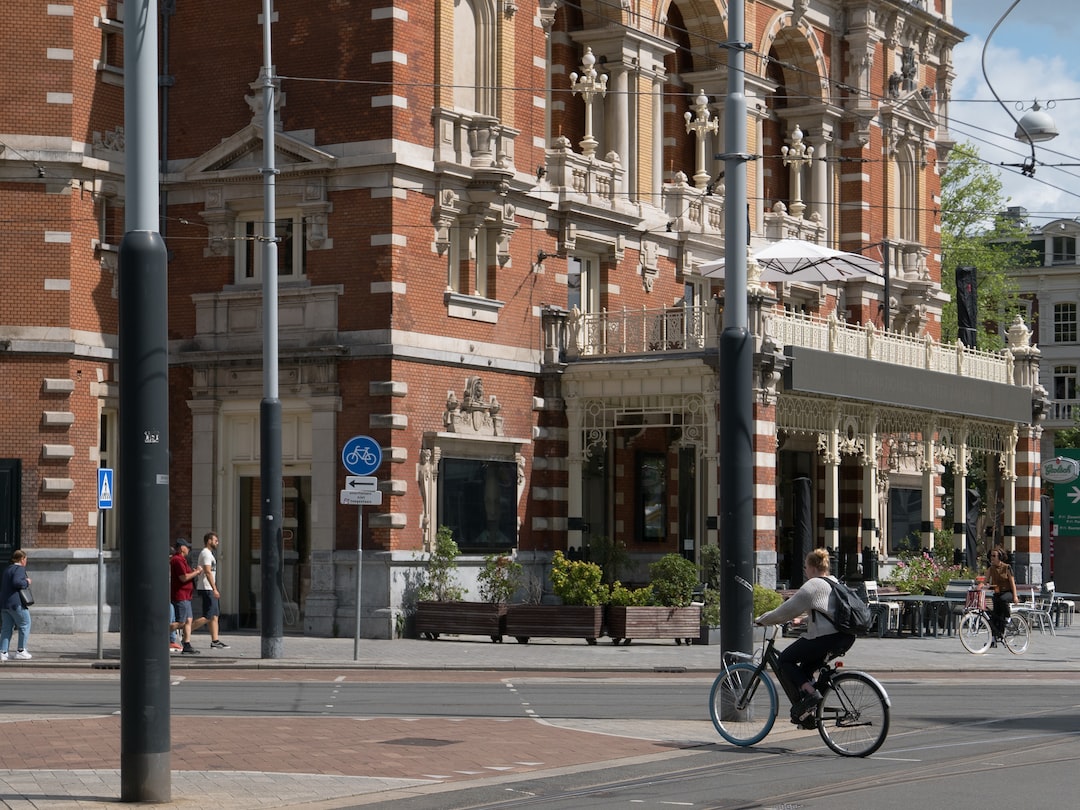10 Interesting Facts About Commuting You Probably Didn't Know
10 Interesting Facts About Commuting You Probably Didn't Know
1. Americans spend a lot of time commuting
Chances are, you spend a significant amount of time commuting every day. Whether you’re driving to work or taking public transportation, commuting can be a time-consuming task. And it’s not just the time you spend commuting that can be a hassle – it’s also the cost.
The average American worker spends $2,600 a year on commuting, which comes out to about $217 a month. And that’s just the average – in some parts of the country, commuters are spending even more. If you live in a big city, you might be shelling out even more money for things like parking and tolls.
Commuting can be a drag, but it doesn’t have to be. There are plenty of ways to make your commute more bearable – and even enjoyable. Keep reading to learn 10 interesting facts about commuting you probably didn’t know!
https://unsplash.com/@tamba
2. The average commute is getting longer
The average commute is getting longer and longer, with a total of nearly 26 minutes spent on the commute each way. For some workers, the commute is even longer – workers in the Northeast and West are most likely to have long commutes of 45 minutes or longer. The longest average commutes are in New York City, with an average of over 50 minutes per trip.
But it’s not just the length of the commute that’s cause for alarm – it’s also the increasing cost of commuting. A study from the Brookings Institute revealed that the average American worker pays over $2,800 a year on commuting costs, including public transit fares and money spent on gas, tolls, and parking.
Luckily, there are ways to make your commute more bearable – and less expensive. Many employers offer telecommuting options, so you don’t have to make a physical trip to the office. Other options include carpooling and using public transportation.
https://unsplash.com/@waldemarbrandt67w
3. Many people have long commutes
It’s no surprise that many people have long commutes. Based on a 2017 report by the US Census Bureau, the average commute for American workers is about 26 minutes each way. But for many cities, the commutes are even longer. For example, the average commute in Los Angeles is 34 minutes, while Chicago’s average commute is 43 minutes. Furthermore, some states have an even longer commutes – workers in Maryland, California, and New York have commutes of 45 minutes or more each way.
Having a long commute is not only inconvenient and time consuming, but it can also be costly. The Brookings Institute reported that the average American worker pays an average of $2,800 a year on transportation costs, including gas, tolls, public transit fares, and money spent on parking. Commuting can also have a negative effect on your health, as stress can manifest in physical symptoms like headaches, insomnia, and general malaise.
Luckily, there are ways to make your commute more bearable. Many employers offer telecommuting options, so you don’t have to make a physical trip to the office. Other options include carpooling, using public transportation, and taking a bike to work. These steps can save money and time, while also reducing your stress levels.
https://unsplash.com/@tamba
4. Commuting can be a stressful experience
Commuting can be a source of stress for many people. In a study conducted by the American Psychological Association, of 1,532 respondents, 68 percent agreed that commuting caused them stress.
Additionally, research conducted by Canada’s Transportation Safety Board found that commuters experienced higher levels of anxiety, fatigue, and emotional exhaustion. The same research also revealed that long commutes had a negative impact on an individual’s relationships with their family and friends.
There are a few ways to help combat the stress of commuting. Carpooling can provide some companionship during your commutes. Additionally, listening to music or podcasts on your way to work can help provide some distraction from the stress of the commute.
Overall, the key to managing the stress of commuting is to plan ahead. Allocating extra time for the commute can help reduce stress, as well as alleviate any potential pressure from being late. Planning ahead and remaining organized is the best way to make sure you arrive to your destination on time, without having to deal with unnecessary stress.
https://unsplash.com/@jxk
5. Some people enjoy their commute
Believe it or not, some people actually enjoy the commute to work.
Commuting can be a great way to clear your head and to create a sort of routine while you are on the way to work. For many people, the routine of traveling to work and having no other commitments on the way can be calming.
Additionally, commuting can also provide some time to plan for the day ahead. Many people use this time to read, catch up on news, or even listen to their favourite music.
Some commuters also find that their commute is an opportunity to disconnect from their day-to-day lives and to step away from the hustle of the workplace. Commuting can provide the time to take in the scenery and to calm their brain.
Ultimately, commuting is a personal experience that can be modified and tailored to how you want to experience it. Even if you are commuting for a long period of time in peak-hour traffic, it is helpful to think of the commute as a mental opportunity to clear your mind and relax.
https://unsplash.com/@dimonblr
6. There are many ways to reduce stress while commuting
For many people, commuting to work can be a huge source of stress. It is understandable, given the need to hurry and the inability to plan your route in the city's jams. Here are some tips to help you reduce the anxiety of your journey:
1. Get organized - Pack your things the night before so you won’t need to rush in the morning. Also, plan out your route in advance so you know exactly the path you will take.
2. Leave early - If you have to make an early journey, don’t wait until the last minute to set out. Leave a few minutes earlier than usual for delays due to traffic or unforeseen circumstances.
3. Listen to calming music - Listening to your favourite type of music can make your journey more enjoyable. Turning on the radio or listening to a calming playlist can help you relax during your commute.
4. Read a book - One of the best ways to take your mind off the stress of commuting is to read. If you are taking public transportation, try to enjoy the journey by reading a good book.
5. Meditate - Practice mindfulness during your journey by sitting quietly and focusing on your breathing. This can help you stay in the present moment and reduce stress.
6. Exercise - If you are taking public transportation, get off at the previous station and walk to your destination. This will not only help relieve stress due to commuting but also get you
https://unsplash.com/@xokvictor
7. Carpooling or taking public transportation can save money
Carpooling or taking public transportation can be a great way to save money and reduce the stress of commuting. Carpooling can reduce stress from traffic jams, and taking public transportation can help you avoid traffic altogether. Other money-saving benefits of carpooling are:
1. Gas & Wear-and-Tear Savings - By sharing the ride with multiple passengers, you can reduce the amount of fuel used and wear-and-tear caused by the frequent start and stops during commuting.
2. Cheaper Parking - Most employers offer discounted or free parking to those who carpool. And if you take public transportation, the cost of parking won't apply to you.
3. Provide Tax Break - Many governments offer tax deductions for carpoolers.
Furthermore, there are also non-monetary benefits of carpooling or taking public transportation such as reducing carbon emissions and maintenance costs, among others. So, if you want to save some money, consider carpooling or taking public transport to work.
https://unsplash.com/es/@fonsheijnsbroek_amsterdam_photos
8. Walking or biking to work can be good for your health
When it comes to selecting a commuting option, walking or biking to work may be the best choice both for your mental and physical health. Studies have shown that walking and biking can reduce stress and increase energy levels, compared to sitting idle in a car or taking public transportation.
Some of the health benefits of walking and biking to work include:
1. Improved fitness - People who bike or walk to work get almost double the amount of physical activity than those who don't.
2. Lower risk of type 2 diabetes - Walking and biking can improve insulin sensitivity and reduce the risk of developing type 2 diabetes.
3. Reduced risk of death - Studies have found that those who bike or walk to work have lower risks of death than those who drive.
4. Improved mental health - Not to mention, walking or biking is great for reducing stress and improving mood.
So, if you want to make a positive change for both your physical and mental health, walking or biking to work can be a great choice.
https://unsplash.com/@worldsbetweenlines
9. Telecommuting is an option for some people
Telecommuting has become increasingly popular in recent years due to advances in technology and the need for cost savings. It involves working outside the office and is becoming an acceptable alternative for many companies.
Telecommuting has many benefits, including:
1. Cost savings - Telecommuters save money on gas, business meals, and clothing costs.
2. Improved productivity - According to studies, telecommuters often have higher productivity rates than office-based workers as they are able to focus better without distractions.
3. Improved work-life balance - Telecommuting can improve work-life balance as employees can work from home and have more flexible schedules.
4. Reduced emissions - And lastly, telecommuting reduces carbon emissions as employees no longer need to commute and generate emissions from driving to and from the office.
Telecommuting has become a viable option for many people and companies, and the trend is likely to continue in the future.
https://unsplash.com/ja/@nicoli_
10. Commuting can be a social experience
Commuting doesn't have to be a totally solitary experience if you don’t want it to be. Commuting can also be a social experience. For many people, engaging in conversation with fellow travelers is an enjoyable part of their commute. It can also provide the opportunity to make new friends, exchange ideas and opinions, and even strengthen existing relationships.
The social element can also be beneficial in other ways. Research shows that commuting with others can make the experience more interesting and enjoyable, decreasing the stress and boredom associated with the process. Carpooling is a great way to enjoy the social benefits of commuting and to save money at the same time. People also have the option to join or create a commuter group so they can ride to work with others on the same route.
Furthermore, bike commuting is becoming increasingly popular, and with it, an entire biking culture, complete with camaraderie and shared experiences. Bike-sharing programs, bike co-ops, and biking clubs all make commuters feel part of a larger community and foster connections with other people who care about the environment.
In short, although many commuters find the prospect of a solitary commute daunting, it doesn’t have to be a lonely experience. There are plenty of ways to make commuting a social and enjoyable experience.
For any question, please contact us in OpenTimeClock.com. https://www.opentimeclock.com.
Created with the Personal Edition of HelpNDoc: Benefits of a Help Authoring Tool








